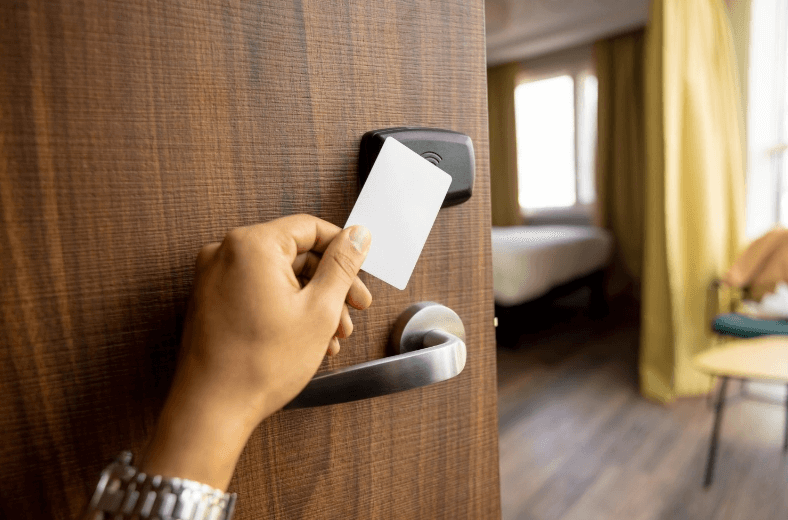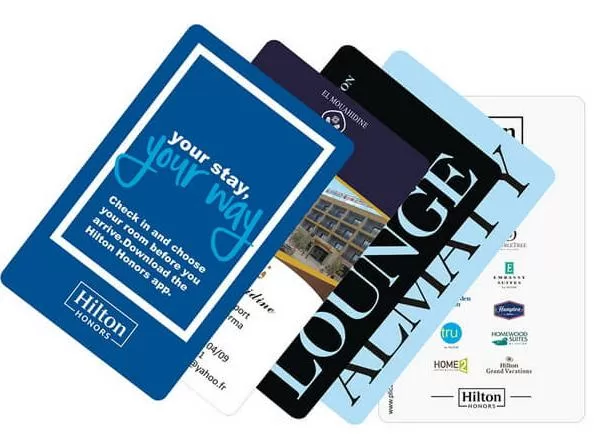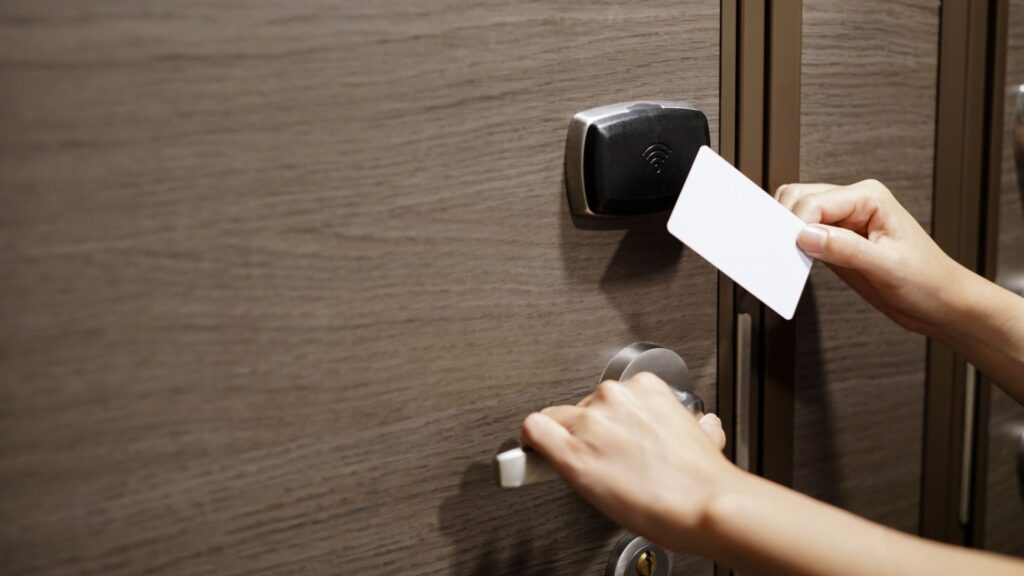
How hotels can patch RFID Hotel Key Card vulnerabilities to protect guestss?
Saflok RFID hotel locks recently made headlines when researchers revealed that millions of doors could be opened within seconds using the “Unsaflok” technique. This discovery raised global concerns about hotel security, guest safety, and the reliability of Hotel Key Card systems. Hotels must respond quickly to these threats by applying patches, updating technology, and improving overall access control practices. Failure to act can result in reputational damage, financial loss, and potential harm to guests.
Understanding RFID Key Card Vulnerabilities
RFID technology offers convenience but also presents security risks. Attackers may clone cards, intercept signals, or exploit flaws in lock firmware. The Saflok breach demonstrates how a single vulnerability can impact millions of rooms worldwide. Hotels must first understand the nature of these risks to design effective responses. Without proper awareness, even advanced systems can be bypassed, putting guests at risk. A secure Hotel Key Card system requires proactive monitoring and regular threat assessment.

Applying Firmware Updates and Patches
One of the fastest ways to address vulnerabilities is through manufacturer-issued patches. Firmware updates often fix flaws that hackers exploit. Hotels should maintain a schedule for checking updates and apply them promptly. Delays in patching leave locks exposed to attacks. Partnering with trusted vendors ensures timely support and reliable fixes. By making updates part of routine maintenance, hotels strengthen the resilience of their Hotel Key Card infrastructure.
Upgrading Outdated Systems
Some RFID systems remain in use long after better alternatives are available. Outdated cards and locks may lack encryption or rely on weak security protocols. Hotels should evaluate current systems and replace vulnerable hardware when necessary. Upgrading to modern smart locks with advanced encryption significantly reduces risk. Though investment is required, the long-term security benefits outweigh the costs. An updated Hotel Key Card solution reassures guests and builds trust in the property.

Implementing Stronger Authentication Measures
Basic RFID systems often rely on single-factor authentication. Hackers exploit this simplicity. Hotels can enhance security by adding layers, such as dynamic encryption keys, rolling codes, or integration with mobile credentials. Multi-factor systems make it harder for attackers to replicate or manipulate access. Enhanced authentication not only secures rooms but also aligns with modern cybersecurity practices. In doing so, hotels elevate the overall reliability of their RFID Hotel Key Card technology.
Training Staff for Incident Response
Even with advanced systems, human error can weaken defences. Staff must be trained to recognise suspicious behaviour, unauthorised access attempts, or unusual lock malfunctions. Incident response protocols should include immediate reporting and quick action steps. Regular training ensures that employees understand both technical updates and security awareness. When staff remain vigilant, hotels create an additional layer of protection around their Hotel Key Card systems.
Conducting Regular Security Audits
Security should never be treated as a one-time project. Hotels benefit from scheduled audits of their access systems. Independent experts can identify flaws that internal teams may overlook. Audits also confirm compliance with data security and privacy regulations. By addressing weaknesses early, hotels prevent costly breaches. Continuous auditing ensures that the Hotel Key Card system remains reliable and resistant to evolving threats.

Communicating Transparently with Guests
Guests need to feel confident that their safety is prioritised. If vulnerabilities are discovered, hotels should communicate openly while explaining corrective measures. Transparency reduces panic and builds trust. For example, hotels can notify guests about recent upgrades or security improvements. Providing visible assurance shows responsibility and care. Effective communication transforms a potential crisis into an opportunity to strengthen loyalty to the Hotel Key Card system.
Strengthening Hotel Key Card Security
The Saflok “Unsaflok” revelation underscores the urgent need for hotels to act. Patching vulnerabilities, applying updates, upgrading systems, and training staff are essential steps. By adopting stronger authentication and conducting regular audits, hotels safeguard guests and protect their brand reputation. Transparent communication further enhances guest trust and confidence. In today’s environment, no hotel can afford to overlook these measures. Ultimately, reinforcing Hotel Key Card security ensures safety, reliability, and peace of mind for every guest.


